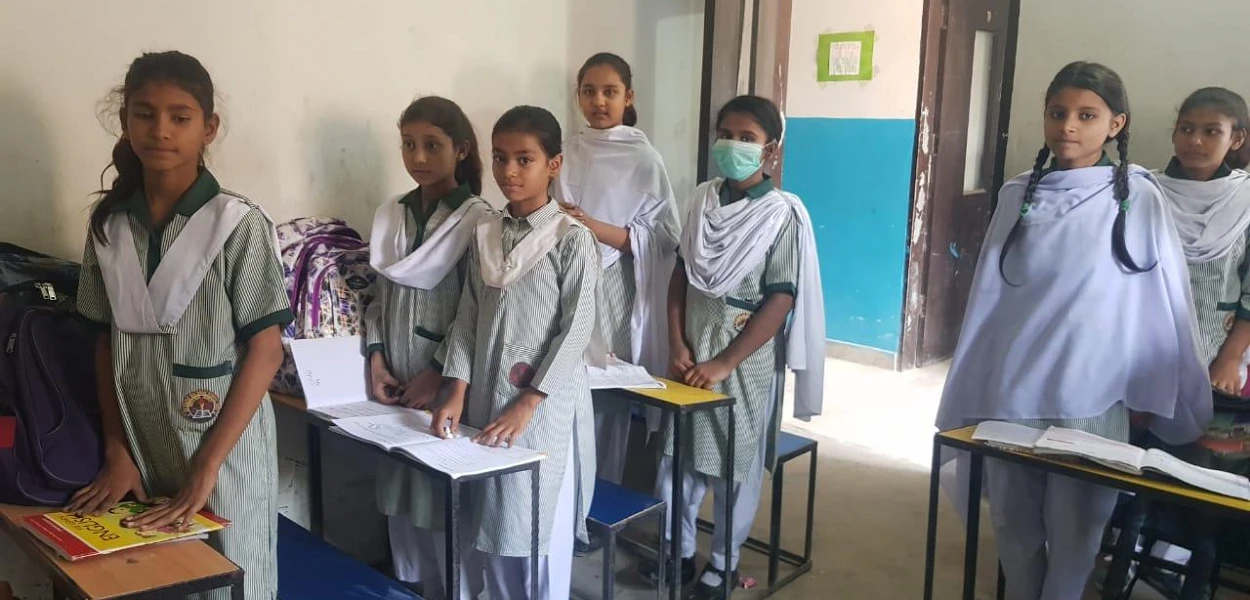
Pakistan scraps obligatory Islamic studies for non-Muslim pupils
In a move welcomed by Christians, Pakistan’s government has dropped compulsory Islamic studies for non-Muslims from the school curriculum.

Children from religious minorities in Pakistan will no longer have to study Islam at school after the education ministry approved a new curriculum. The change marks for a victory for those, like CSI’s project partner Anjum*, who have campaigned for educational reform.
The Curriculum for Religious Education 2023 will come into effect from the school year 2024-5, the government announced. It applies to all school levels, from grade one through high school.
Until now, Islamic studies have been compulsory for all pupils and performance in the subject influenced their grades. Now, non-Muslim pupils will study content relating to their own faith. The ruling applies to seven minority religions in Pakistan: Christianity, Baha’I, Buddhism, Hinduism, Kalasha, Sikhism and Zoroastrianism.
For each of these groups, the education ministry undertakes to develop and approve a specific text for the religious education curriculum.
A 20-year campaign
Anjum is himself a high school teacher. In addition, he heads the Pakistan Minorities Teachers’ Association (PMTA). The association has been advocating for the rights of minorities to their own religious education for two decades.
“After a 20-year struggle in which we appealed to various bodies, institutions, governments and the Supreme Court, the Pakistani government has finally recognized this right and exempted non-Muslim students from the obligation to study Islam,” Anjum told the Fides Catholic news agency.
“We are grateful to the Secretariat of the National Curriculum Council (NCC) and to all those organizations who, like us, are committed to ensuring that all students have equal rights and opportunities without discrimination and that pluralism is preserved,” he said.
Anjum pointed out that the Constitution of Pakistan recognizes these rights. Article 22 states that “no person attending an educational institution is obliged to receive religious instruction, participate in religious ceremonies or follow any religious cult other than his own.”
Textbooks for Christians
The PMTA strives to ensure that the textbooks used in Pakistani schools are free of religious prejudices that are harmful to minorities.
The NCC has now authorized the publication of school books for students of the seven religious communities.
The Christian community in Pakistan has already presented and published textbooks for the new national religious education curriculum for grades one to six, while teams of teachers and specialists are preparing texts on other religions, “free from any cultural and religious bias,” Anjum said.
*For security reasons, we do not refer to our partner in Pakistan by his full name.




